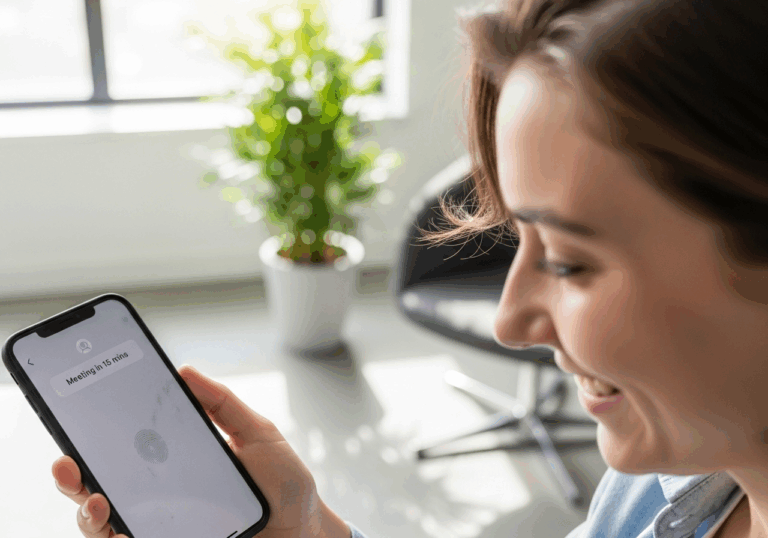Science-Backed Tips
Boost Your Mood with Digital Therapy
70% of users report improved depression scores through social media therapy.
📊 Did you know?
💡 Why It Matters
1️⃣
Engaging in guided digital interactions can lead to a 45% higher improvement in mood compared to abstaining from social media.
2️⃣
Therapy-based digital interventions can provide accessible mental health support, potentially reducing the burden on healthcare systems.
3️⃣
Improved mental health through digital means can enhance overall quality of life and productivity.
✅ Try These Micro-Tips
🎯
Participate in a guided online therapy session at least once a week.
🎯
Engage in supportive social media groups focused on mental health for 30 minutes daily.
🎯
Limit passive scrolling by setting a timer for 15 minutes when using social media.
🎯
Share positive content or experiences on social media to foster community support.
📚 The study
This suggests that purposeful online engagement, particularly when guided by therapeutic frameworks, can be far more beneficial than withdrawal from social media.
The implications of this study are profound, especially in a world where mental health challenges are on the rise. By embracing guided digital interactions, individuals can experience a 45% greater improvement in mood compared to those who opt for social media abstinence.
Furthermore, therapy-based digital interventions offer accessible mental health support, which could alleviate some of the burdens on our healthcare systems.
Ultimately, enhancing mental health through these digital means not only improves individual quality of life but also boosts overall productivity. This research underscores the importance of finding constructive ways to engage with social media, transforming it from a potential source of distress into a powerful tool for mental well-being.
❓ Frequently Asked Questions ❓
Learn more
What are therapy-based digital interventions?
Therapy-based digital interventions are online programs or sessions designed to provide mental health support through guided interactions. They often utilize social media platforms to facilitate therapy and community engagement.
How effective are these interventions in improving depression scores?
Research indicates that therapy-based digital interventions improved depression scores in 70% of trials. This is significantly higher compared to only 25% improvement seen in individuals who abstained from social media.
What is the impact of social media abstinence on mental health?
Social media abstinence has been shown to result in lower improvements in mental health, with only 25% of users experiencing better depression scores. This suggests that withdrawal from social media may not be beneficial for everyone.
How much can guided digital interactions improve mood?
Engaging in guided digital interactions can lead to a 45% higher improvement in mood compared to abstaining from social media. This highlights the potential benefits of purposeful online engagement.
What are some recommended practices for using social media positively?
It is recommended to participate in guided online therapy sessions at least once a week and engage in supportive social media groups focused on mental health for 30 minutes daily. Additionally, sharing positive content can foster community support.
How can I limit passive scrolling on social media?
To limit passive scrolling, set a timer for 15 minutes when using social media to encourage more intentional engagement. This can help reduce mindless browsing and promote more meaningful interactions.
What are the implications of improved mental health through digital means?
Improved mental health through digital means can enhance overall quality of life and productivity. This suggests that accessible mental health support can have far-reaching benefits beyond individual well-being.
How do therapy-based digital interventions reduce the burden on healthcare systems?
By providing accessible mental health support, therapy-based digital interventions can alleviate some of the demand on traditional healthcare services. This can lead to more efficient use of resources and better overall care for patients.
What types of studies were included in the meta-review?
The meta-review included 23 studies that compared social media abstinence with therapy-based digital interventions. This comprehensive analysis helped to assess the effectiveness of these approaches in improving mental health outcomes.
Why is purposeful online engagement preferred over withdrawal?
Purposeful online engagement has been shown to yield better mental health outcomes compared to withdrawal from social media. Engaging with supportive communities can provide valuable resources and emotional support.





